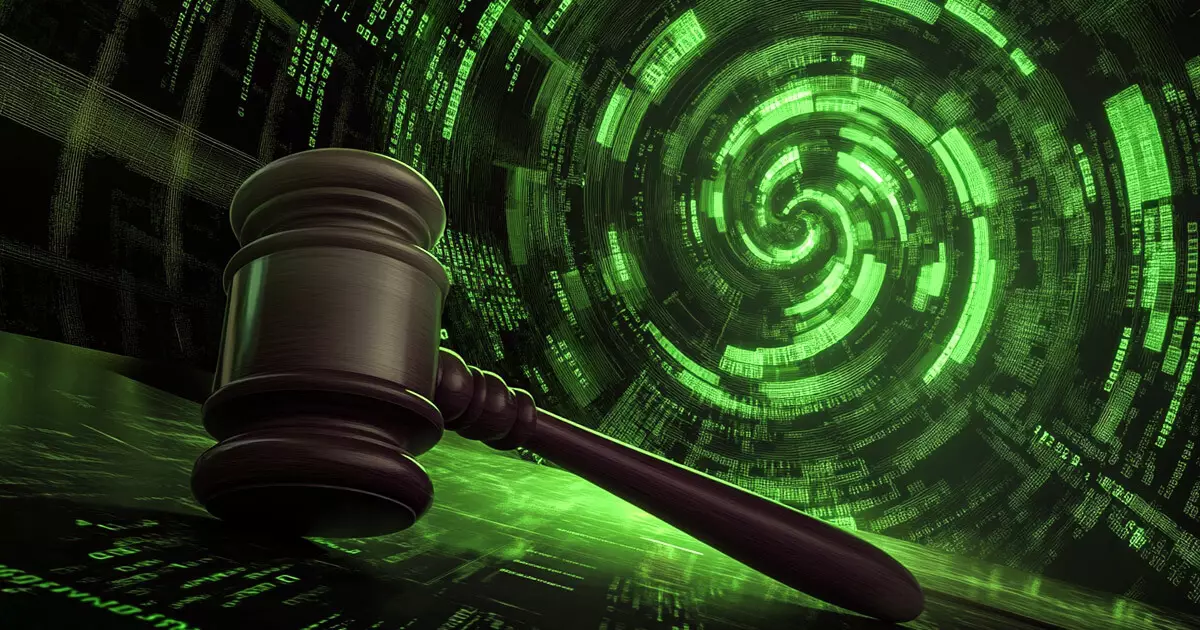The recent ruling by Judge Katherine Polk Failla in the Southern District of New York has put a significant spotlight on the legality and regulation of cryptocurrencies, particularly regarding software code used within crypto protocols. This decision has profound implications not only for developers like Roman Storm of Tornado Cash but for the entire cryptocurrency industry, as it raises a critical question: should computer code be protected under the First Amendment?
Understanding the Ruling
On September 26, 2023, Judge Failla declared that software code utilized in crypto protocols, such as Tornado Cash, does not receive First Amendment protection—an assertion that has repercussions for how cryptocurrencies and blockchain technologies are viewed legally. Tornado Cash, designed to facilitate transactions anonymously, is accused of being involved in money laundering and evading U.S. sanctions. The crux of the case is whether the development and deployment of software code can be categorized as a form of free speech.
Roman Storm’s argument defended the notion that coding is a form of expression deserving legal protection, but Judge Failla firmly rejected this perspective. She pointed out that while programming can embody artistic expression, the functionality of money transmission falls outside the scope of free speech. This distinction implies that the mere creation of software cannot shield developers from legal accountability, especially when their applications are associated with financial transactions perceived as illicit or non-compliant with regulatory frameworks.
The ruling sets a daunting precedent for how cryptocurrencies and their developers might be treated under federal law. By categorizing crypto protocols as money transmitters—even in instances where the developers lack direct control over the funds—this decision could redefine regulation in the sector. The implications extend beyond Tornado Cash, affecting similar platforms like Samourai Wallet, which also faces scrutiny for its operations.
Critics within the crypto industry are perturbed by the ruling, as it raises fears of increased liability for developers. Legal experts and industry advocates, like Amanda Tuminelli from the DeFi Education Fund and Jake Chervinsky from Variant, have voiced their concerns that the court’s decision could lead to a chilling effect on innovation. They argue that holding software creators to such standards may dissuade them from exploring and developing new technologies or concepts, given the fear of legal repercussions.
The conflict between innovation in the cryptocurrency space and the demands of regulation reflects a broader societal challenge. With digital currencies and blockchain technology evolving rapidly, regulators are scrambling to devise frameworks that can encompass this complex landscape. Judge Failla’s ruling offers clarity on certain ambiguities surrounding anti-money laundering (AML) laws and the Bank Secrecy Act (BSA), particularly regarding the obligations of software developers in the cryptocurrency domain.
This case underscores the critical intersection between technology and law. As government agencies work to ensure compliance and prevent financial crimes, the measures they adopt may inadvertently hamper technological advancement. The political discourse surrounding regulating cryptocurrencies is further complicated by the dichotomy of promoting innovation while maintaining an anti-crime stance.
The Path Forward
As Roman Storm prepares for his trial scheduled for December 2, appeals from his legal team are anticipated. The eventual outcome could reshape the landscape of developer liability in the blockchain realm, as it raises questions about the responsibilities of those who create protocols that can be used for both lawful and unlawful purposes.
This case also highlights the urgent need for clearer guidelines and a more nuanced understanding of how cryptocurrencies fit into existing legal frameworks. Without such clarity, both developers and regulators face a precarious balancing act, one that must embrace the potential of technology while instilling legislative safeguard.
As the legal battles continue, it is crucial for the tech community and policymakers to engage in discussions that address fundamental issues of innovation, expression, and regulation, ensuring that any frameworks adopted do not stifle creativity and progress in the dynamic world of cryptocurrency.

